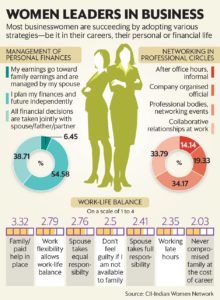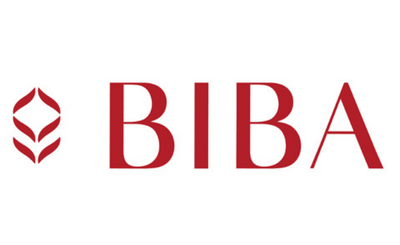 More than half of the country’s business women plan their finances independently of other members in the family. According to a report titled Success Strategies of Women Entrepreneurs by the Confederation of Indian Industry (CII) and Indian Women Network, 56.67% of the women entrepreneurs are sole decision makers of their finances while 38.71% take decisions with their spouse, father or significant other.
More than half of the country’s business women plan their finances independently of other members in the family. According to a report titled Success Strategies of Women Entrepreneurs by the Confederation of Indian Industry (CII) and Indian Women Network, 56.67% of the women entrepreneurs are sole decision makers of their finances while 38.71% take decisions with their spouse, father or significant other.
“It is important for a woman to manage her finance. The social system in India is changing—women are single by choice, aren’t living in unhappy marriages anymore, or are single parent. So there comes a need that they also learn to manage money in a better way,” said Puneeth Kumar, director, Investography Pvt Ltd.
More than 50 women leaders at a minimum of C-suite level in organisations with a turnover of over ₹50 crore were interviewed to compile the report. 84.62% of the interviewees were above 50 and the remaining section of women leaders were above 30.
“Just as it’s important for men to manage their finances, it is equally important for women to do so. The sense of independence should never be restricted to one gender,” said Tara Singh Vachani, chief executive officer and managing director, Antara Senior Living, a part of Max Group. “The confidence to be able to do this comes from a society that is slowly waking up to equality and equanimity and therefore making it conducive for women to have the skill set and support.”

Cultural misogyny at work place
Most women entrepreneurs acknowledged that gender bias and an ingrained prejudice against women exists at most organisations.
“A deep sensitisation of men as to what is appropriate and inappropriate in the work space is key to making a women feel safe and confident to chart her own course,” said Vachani.
Women entrepreneurs agreed that there are glass ceilings at work places that stop them from working towards reaching the top of the pyramid. Most of them experienced ignorance in a very imperceptible manner, said the report.
However, not many faced with challenges such as being stereotyped to women-friendly jobs or sexism.
Work-life balance
While there is a rise in the number of women entrepreneurs climbing to the top of the professional hierarchy, what is often discounted while talking about their success is the art of maintaining a work-life balance. Most woman entrepreneurs said they’ve been able to succeed because of family or paid help. The second strategy to achieve this balance is to opt for flexible work which allows them to fulfil their familial commitments. A major chunk of the women said they never compromised family at the cost of their career and some said their spouse took equal responsibility in managing the family, therefore allowing them to maintain a balance between work and life.
The changing trend will make companies more sensitive, more creative in their management of problems and merit hard work over gender stereotypes.
The development was reported by livemint.com






